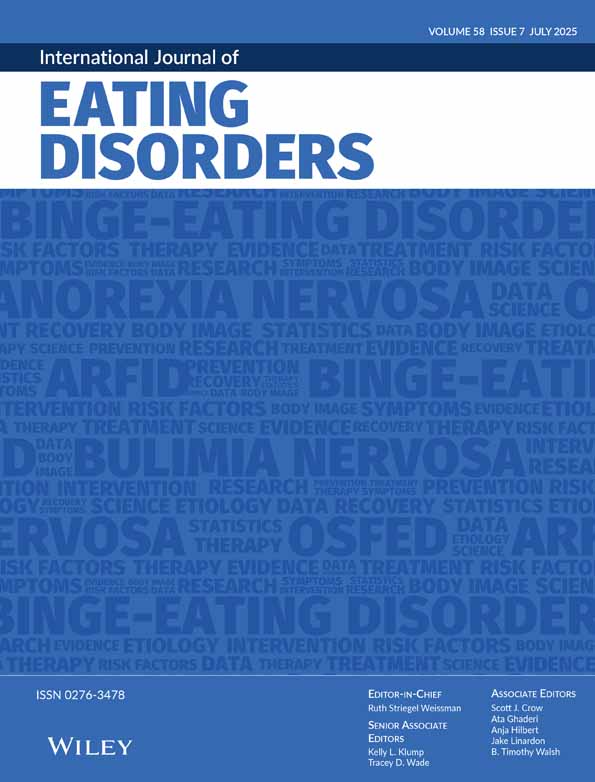State dissociation in bulimic Eating Disorders: An experimental study
Abstract
Background
Dissociation and binge eating appear to have equivalent functions, lowering awareness of generalized threat and negative self-esteem. Dissociation can be a general characteristic of the individual, present in all situations (i.e., a trait), or it can be a time-limited reaction to a specific situation (i.e., a state). Previous studies have shown that the subliminal presentation of threat cues leads to increased bulimic behaviors. This experimental study examines whether dissociation is activated under similar conditions, thus testing whether dissociation is a reactive state in bulimic women, as well as a trait.
Method
The participants were 24 bulimic and 26 nonclinical women, each of whom completed the Eating Disorders Inventory and the Dissociative Experiences Scale. Each woman was exposed to subliminal neutral and threat cues, before completing the subjective component of the Clinician-Administered Dissociation Scale and a measure of anxiety and mood (the Hospital Anxiety and Depression Scale).
Results
The subliminal threat cue significantly increased state dissociation (particularly derealization levels) in the bulimic women but had no effect on the nonclinical group. There was no impact on mood.
Discussion
State dissociation appears to play an integral role in the bulimic process, but further studies are needed to determine the causal structure in that relationship and whether it applies in other disorders. Future clinical practice should be directed towards the identification and treatment of state dissociation in therapy. © 2005 by Wiley Periodicals, Inc.




